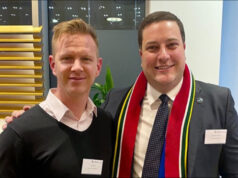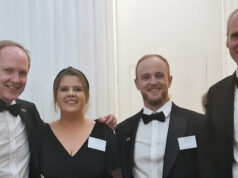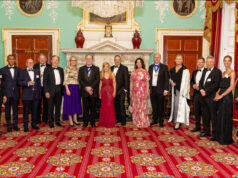Investment in South African real estate and the outbound flow of capital from the region in to Europe was the subject of a recent discussion convened by the (ULI) and the South African Chamber of Commerce.
Professor Francois Viruly gave an opening keynote presentation on the real estate industry in South Africa. Professor Viruly is a leading property economist in South Africa; he is an associate professor at the University of Cape Town where he also heads the UCT/Nedbank Urban Real Estate Research Unit and has over twenty years of experience in the fields of Property Economics, Property Investment and Property Finance. He explained that against a backdrop of social challenges and political instability, the property market in South Africa had experienced cyclical growth with property booms in the 1960s, 1980s and 2000s. The booms were not just a reflection of GDP but a result of structural changes including industrialisation, decentralisation and economic success. Looking ahead to the next boom, Professor Viruly predicted transport and connectivity will be the key driver and cities that understand and achieve good connectivity will do well.
Yields in the region are fairly consistent and are sitting at around 8-8.5% while a levelling of vacancy rates is being seen in the CBDs. However, within the office market as a whole vacancies are on the rise which is cause for some concern.
Professor Viruly saw demographics and a lack of understanding of the end users of real estate as challenges for the industry. Population in Johannesburg is expected to rise by 10 million people by the year 2040 and increased densification will be needed. There is also a rise in the lower middle class entering the property market and the industry needs to adjust to these new users.
Due to a lack of stock and pricing levels, South African investors are looking for opportunities outside Africa, particularly in Central & Eastern Europe. They are also looking to the alternative sectors to achieve better investment returns such as housing, self-storage and leisure – a trend that is also being experienced across Europe and noted in the recently launched ULI/PwC Emerging Trends in Real Estate Europe 2017 report.
Professor Viruly also highlighted STEEP in considering the future of the South African property sector and what the big influences will be. This stands for social, technological, economic, environmental and political trends which all need to be considered and evaluated when looking to understand the current state of a market, as well as where it could be headed.
A panel of experts, expertly moderated by Jon Zehner, ULI Europe Chairman and Global Co-Head of Client Capital Group, LaSalle Investment Management, debated the issues introduced by Professor Viruly and gave their insights in to opportunities in the region.
John O’Driscoll, Head of M&A, JLL shared his experience with a focus on capital coming out of the region. Incoming investors remain nervous – economic instability, credit ratings, political instability, corruption and the weakness of the Rand make it hard for internationals to commit to investing. All the panellists agreed, however, that South Africa has a professional and well developed financial infrastructure, which can effectively support international investment.
Due to the sophistication of the property community in South Africa the REIT market is strong. South African REITs are income focused and are therefore looking to markets that can deliver returns for shareholders. There has been considerable focus on Central & Eastern Europe in the last 12-18 months, due to decent yield premiums from this emerging market. Previously,the UK has also featured strongly on the South African property investor rader.
John reported that the South African REITs are yielding 7.5-8% but that they will need to grow those yields to make the valuations work. He flagged that “one of the biggest challenges of investing in Europe is getting increases in yield”.
Rebecca Patton, Head of Investor Relations, Hammerson was asked why Hammerson decided to list on the Johannesburg Stock Exchange (JSE). Rebecca explained that Hammerson has a global register and as such an obligation to look to identify new capital. The company didn’t, at the time, have many South African investors and a roadshow opened their eyes to the potential capital markets in the region. This coupled with the rising middle classes, sophisticated fund management system and the experience of South African REITs achieving liquid and income returns, facilitated their decision to list. They also saw a gap in the South African market for greater diversification of listed companies. So, has the listing been a success? Rebecca reported that there has been “plenty” of interest since listing on 1st September 2016 with 7% of the register on the Johannesburg Stock Exchange.
In response to the question of whether there are also good opportunities in the rest of Africa, audience member, David Morley, Partner and Head of Real Estate at Actis said that the 5-7 year outlook is good. Growth will be seen, particularly in gateway cities, due to the changes in demographics. “Those who select and execute well will make money” David predicted.
The discussion concluded that, despite the challenges South Africa faces, the levels of professionalism and sophistication within the general investment industry and in the property sector itself are very strong and set the bar for many developed countries.










